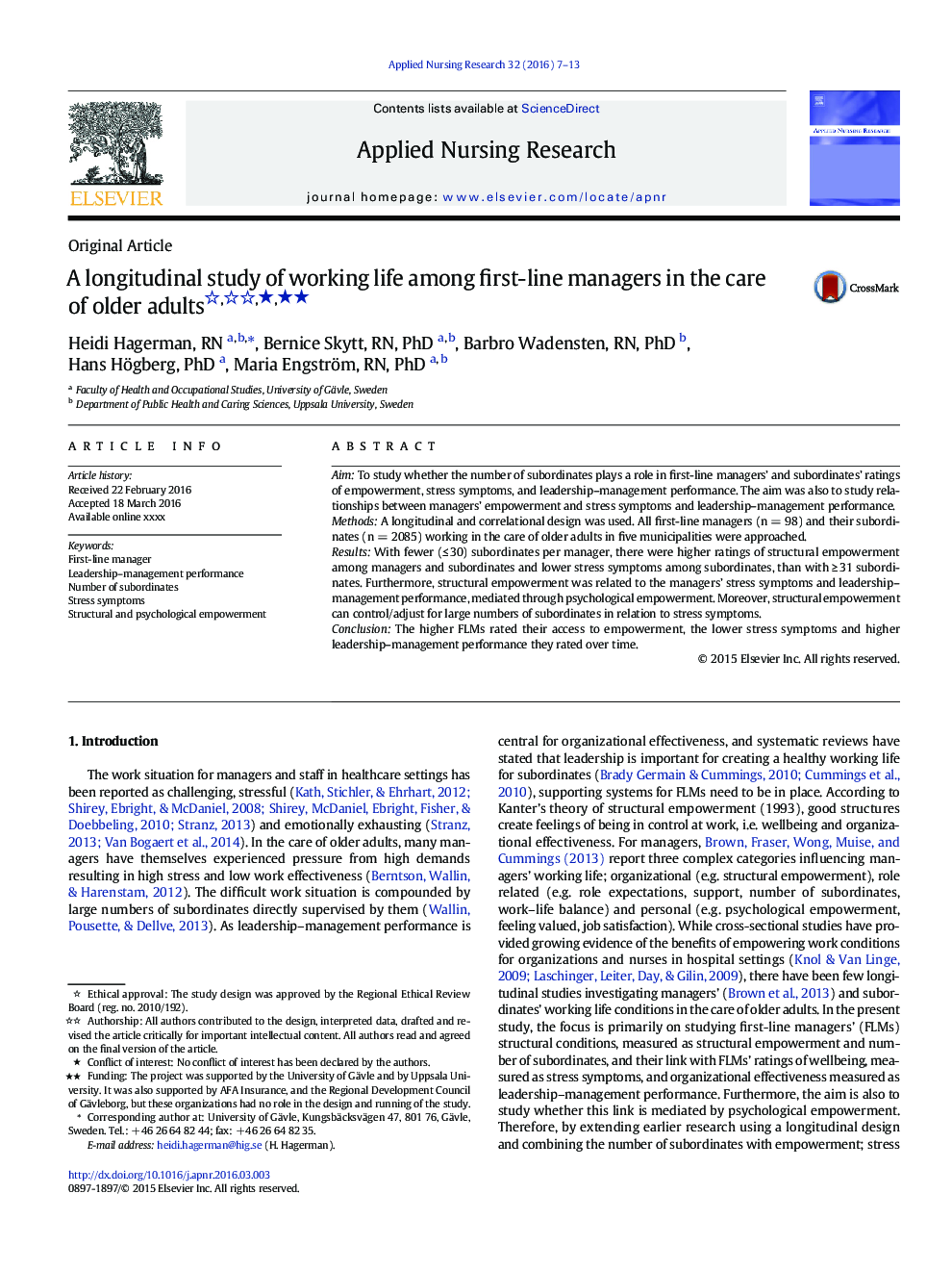| Article ID | Journal | Published Year | Pages | File Type |
|---|---|---|---|---|
| 2644729 | Applied Nursing Research | 2016 | 7 Pages |
AimTo study whether the number of subordinates plays a role in first-line managers’ and subordinates’ ratings of empowerment, stress symptoms, and leadership–management performance. The aim was also to study relationships between managers’ empowerment and stress symptoms and leadership–management performance.MethodsA longitudinal and correlational design was used. All first-line managers (n = 98) and their subordinates (n = 2085) working in the care of older adults in five municipalities were approached.ResultsWith fewer (≤ 30) subordinates per manager, there were higher ratings of structural empowerment among managers and subordinates and lower stress symptoms among subordinates, than with ≥ 31 subordinates. Furthermore, structural empowerment was related to the managers’ stress symptoms and leadership–management performance, mediated through psychological empowerment. Moreover, structural empowerment can control/adjust for large numbers of subordinates in relation to stress symptoms.ConclusionThe higher FLMs rated their access to empowerment, the lower stress symptoms and higher leadership–management performance they rated over time.
